William Zinsser Quotes
Most popular William Zinsser Quotes

Too short is always better than too long.
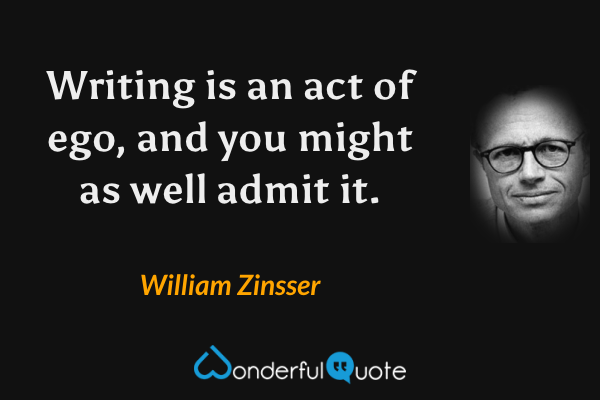
Writing is an act of ego, and you might as well admit it.
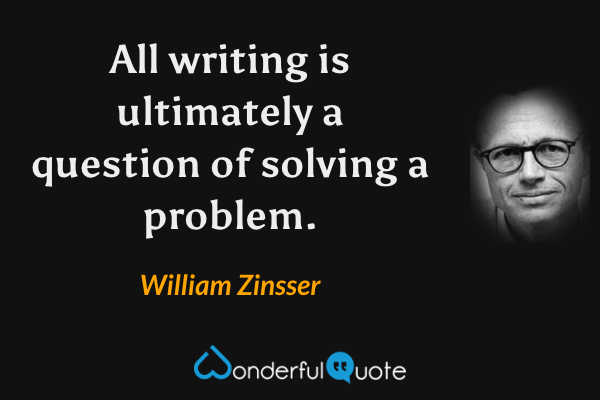
All writing is ultimately a question of solving a problem.

Eloquence invites us to bring some part of ourselves to the transaction.
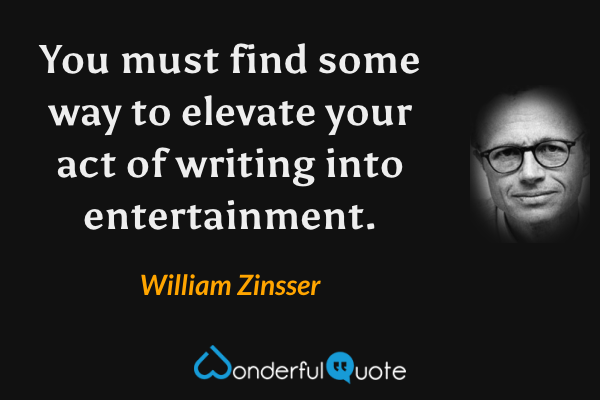
You must find some way to elevate your act of writing into entertainment.

What I want to do is to make people laugh so that they'll see things seriously.
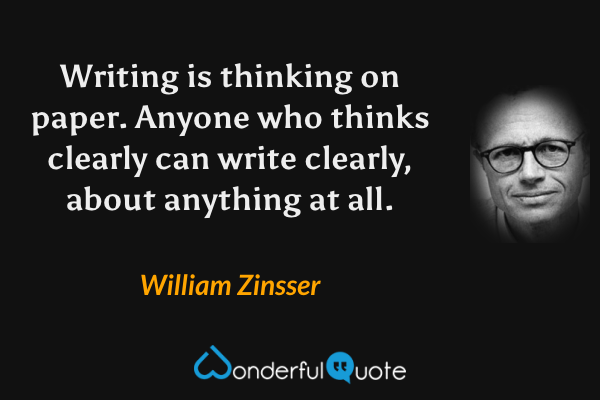
Writing is thinking on paper. Anyone who thinks clearly can write clearly, about anything at all.
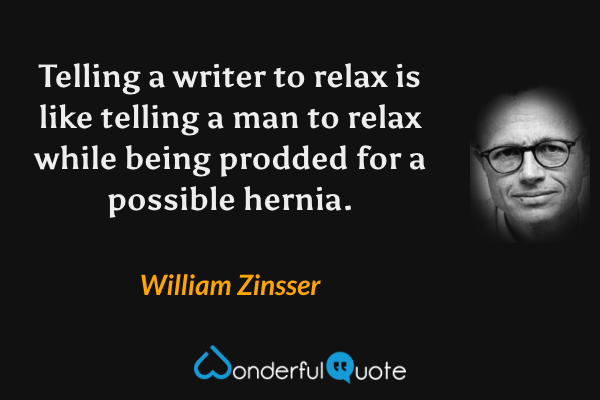
Telling a writer to relax is like telling a man to relax while being prodded for a possible hernia.
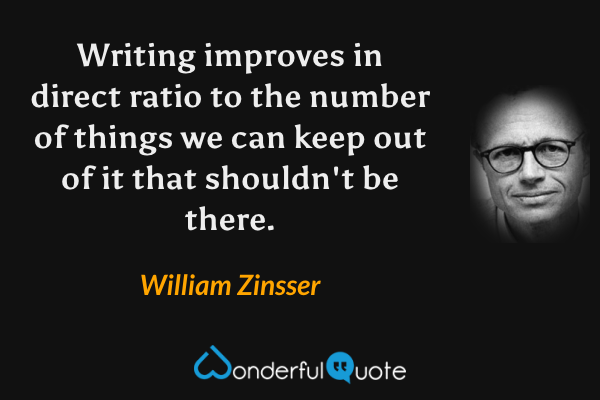
Writing improves in direct ratio to the number of things we can keep out of it that shouldn't be there.

Keep your paragraphs short. Writing is visual—it catches the eye before it has a chance to catch the brain.

Be yourself and your readers will follow you anywhere. Try to commit an act of writing and they will jump overboard to get away.

Avoid the ecstatic adjectives that occupy such disproportionate space in every critic's quiver—words like "enthralling" and "luminous."
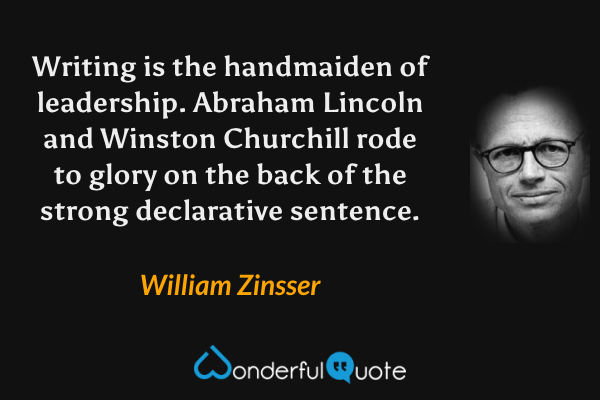
Writing is the handmaiden of leadership. Abraham Lincoln and Winston Churchill rode to glory on the back of the strong declarative sentence.

Fighting clutter is like fighting weeds—the writer is always slightly behind. New varieties sprout overnight, and by noon they are part of American speech.

Much of my writing has taken the form of a pilgrimage: to sacred places that represent the best of America, to musicians and other artists who represent the best of their art.

The Exclamation Point. Don't use it unless you must to achieve a certain effect. It has a gushy aura, the breathless excitement of a debutante commenting on an event that was exciting only to her.
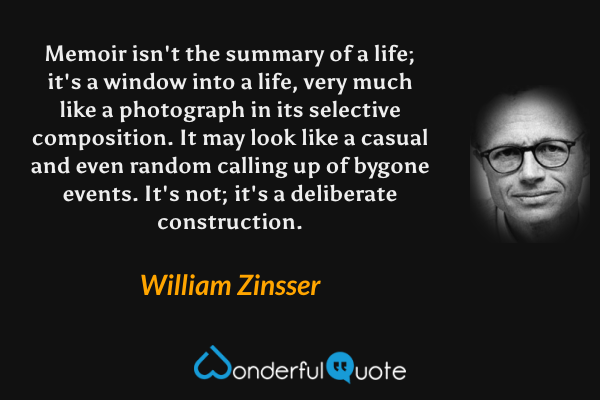
Memoir isn't the summary of a life; it's a window into a life, very much like a photograph in its selective composition. It may look like a casual and even random calling up of bygone events. It's not; it's a deliberate construction.

Most writers sow adjectives almost unconsciously into the soil of their prose to make it more lush and pretty. The sentences become longer and longer as they fill up with stately elms and graceful boughs and frisky kittens and sleepy lagoons.

All your clear and pleasing sentences will fall apart if you don't keep remembering that writing is linear and sequential, that logic is the glue that holds it together, that tension must be maintained from one sentence to the next and from one paragraph to the next and from one section to the next, and that narrative—good old-fashioned storytelling—is what should pull your readers along without their noticing the tug.


